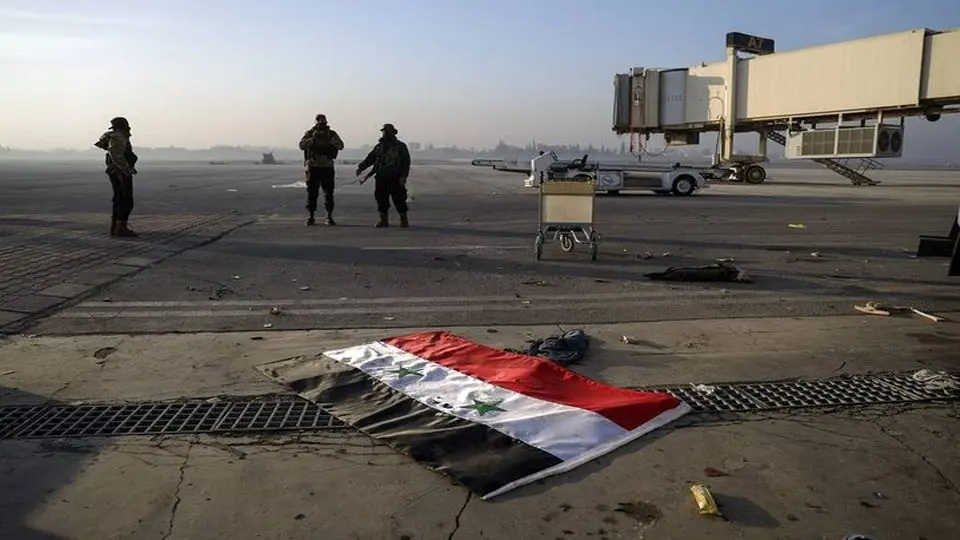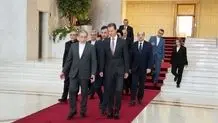Fate of Syria's oil fields in aura of uncertainty
The Fate of energy and oil fields in Syria is in an aura of uncertainty after the fall of Bashar Assad's government concerning the geopolitical developments and the interests of actors in the Arab country.

Mehr- The Fate of energy and oil fields in Syria is in an aura of uncertainty after the fall of Bashar Assad's government concerning the geopolitical developments and the interests of actors in the Arab country.
History of Syria’s oil
According to the Syrian Ministry of Oil, oil exploration and drilling in the country began in 1933 when the Iraqi Petroleum Company discovered oil fields in Kirkuk, Iraq, which extend to Deir Ezzor in eastern Syria. The first commercial flow of oil was in 1956.
Exploration was still limited to Western companies until the General Authority for Petroleum Affairs was established in 1958, to undertake exploration and production work, refining, transportation and purchasing petroleum derivatives.
When the Ba’ath Party took power in 1963, it introduced Legislative Decree 132 in 1964, which prohibited foreign companies from exploration and investment licenses, reserving these rights for the state.
Oil production began in earnest in May 1968, with the first barrel arriving at the port of Tartous from a pumping station in Tal Adas, north-eastern Syria, via the Homs refinery.
In 1974, the Syrian Petroleum Company was established, along with other specialised companies responsible for refining and transportation, all under the umbrella of the Ministry of Oil and Mineral Resources.
The Syrian Petroleum Company oversaw all aspects of the oil and gas extraction industry, generating more than 50% of the country's national income.
Syria's oil industry has seen various partnerships between local companies and foreign entities. In 1980, the Al-Furat Petroleum Company was established, with the Syrian state holding 65% of its shares and foreign companies led by Shell owning 35%.
The same year, Petro-Canada (acquired by Canadian major Suncor Energy in 2009) became a partner in the Al-Shaer field and established a gas plant in Al-Furqlus.
In the early 1990s, French company Total began operations in Syria but withdrew due to bilateral strain. Total returned from 2007-11, alongside other Western companies, but American companies' presence has declined since the 1980s.
SDF, US domination on Syria oil resources
The US-backed SDF controls a quarter of Syrian territory, including the resource-rich area east of the Euphrates, which holds 90% of Syria's oil and more than half of its natural gas fields, as well as infrastructure owned by foreign companies through contracts signed with Damascus.
The SDF's pumping and production of the oil is illegal and contrary to international sanctions but nevertheless continues, with ordinary Syrians yet to benefit.
Because of the sanctions, this oil cannot be sold on international markets so is sold on the black market at a fraction of its real value, reported to be around $15 per barrel.
On 15 August 2023, officials from the Autonomous Administration of North and East Syria (the political wing of the SDF) claimed they controlled less than half the wells and fields in its areas of influence.
What groups will dominate Syria's oil wells in future?
Which groups will dominate the Syrian oil wells in the northern and central regions in the future is of high importance.
Due to the fall of Bashar al-Assad's government and the reduction of the influence of his allies, the American-Kurdish axis and Türkiye are the most important players in this field.
It is predicted that the power and influence of Syrian Kurdish Democratic Forces which are supported by the United States and also now control 90% of the country's oil fields, will increase in the shadow of the internal developments in Syria.
Warren Monet, an oil analyst, said in an interview with Forbes magazine that the SDF's efforts to continue taking control of oil wells will increase.
There are two approaches regarding the continued presence of the US in the region. Some predict that the US will maintain a military presence in these areas to continue to use Syrian oil. And they believe that with the election of Trump, the United States may not have the motivation to support the Kurds.
In 2019, Trump also threatened to withdraw the US from Syria, but in the end he agreed to keep some US forces in Syria on the condition of maintaining the export of Syrian oil.
Turkey is another actor in this regard. Regarding its support for Tahrir al-Sham terrorists, there is a possibility that it will dominate the oil wells of Syria.




